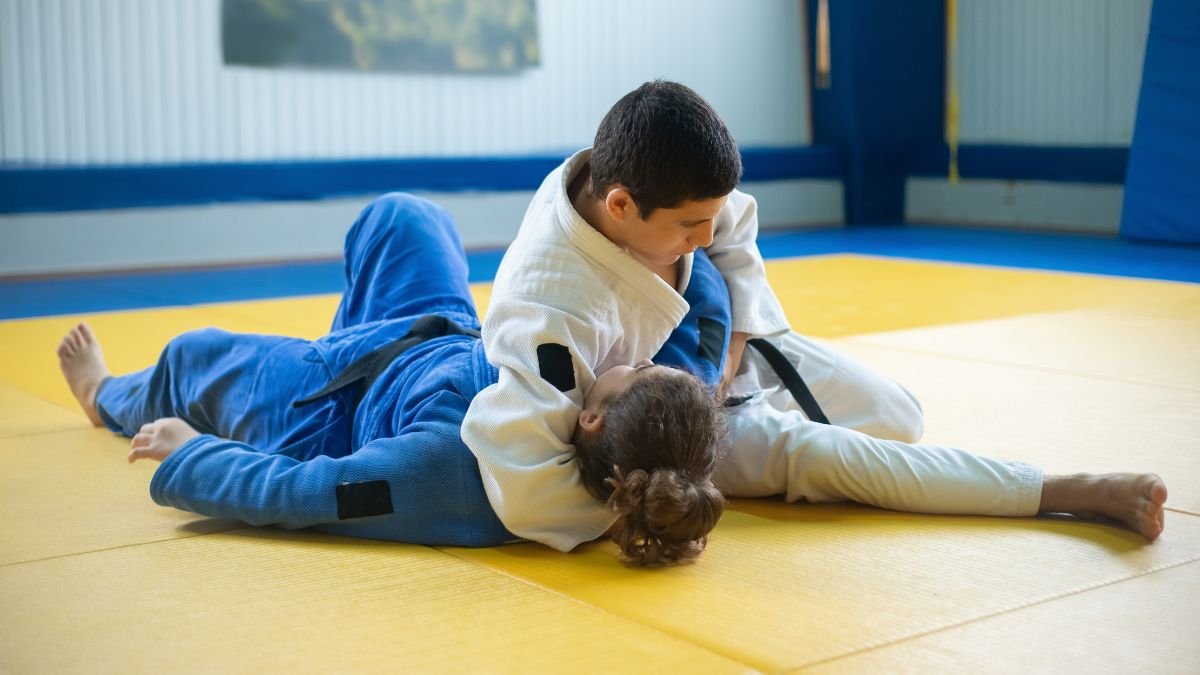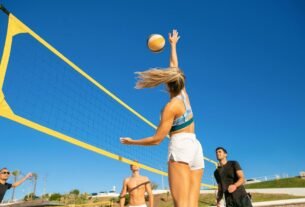Introduction
What makes a country dominate a sport on the global stage? For Brazil, the answer lies in the remarkable achievements of its Brazilian judoka athletes. Over the years, these competitors have not only brought home medals but also inspired a nation, showcasing the resilience and determination that are hallmarks of Brazilian culture.
The success of these judokas has sparked a passion for the sport across various demographics, leading to increased participation at the grassroots level and fostering a new generation of talent.
Judo has become a cornerstone of Brazil’s sports culture. The country’s athletes have consistently performed well in international competitions, with many achieving podium finishes at prestigious events. From Olympic triumphs to historic firsts, their stories are a testament to dedication and skill, illustrating how judo transcends mere competition to become a source of national pride and unity.
As these athletes continue to break barriers and set records, they inspire countless individuals to pursue their dreams, further solidifying judo’s place in the heart of Brazil.
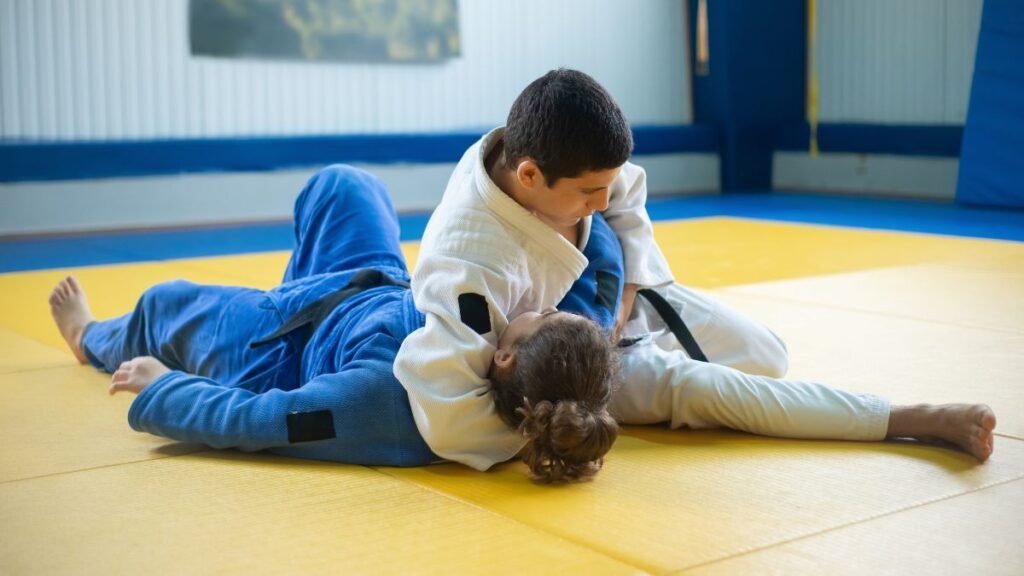
Recent events, such as the Paris 2024 Olympics and the Doha 2023 World Championships, have further solidified Brazil’s reputation in this sport. Athletes like Rafael Silva, Rafaela Silva, and Tiago Camilo have become household names, representing the pinnacle of Brazilian judo.
This article examines the lives and careers of seven iconic figures who have significantly influenced the sport in Brazil. Their journeys highlight the connection between judo and Brazil’s cultural identity, making them unforgettable icons in the world of sports.
Key Takeaways
- Brazil has a strong presence in global judo competitions.
- Olympic medals and historic firsts mark Brazil’s judo history.
- Judo is deeply connected to Brazil’s cultural identity.
- Recent achievements include the Paris 2024 Olympics and Doha 2023 World Championships.
- Iconic athletes like Rafaela Silva have made significant contributions.
Introduction: The Legacy of Brazilian Judoka
The story of judo in Brazil is a tale of cultural fusion and athletic excellence. Its history dates back to the early 1900s when Japanese immigrants introduced the sport. Figures like Mitsuyo Maeda, a Kodokan judo practitioner, played a pivotal role in its spread. This laid the foundation for a unique blend of techniques that would later define Brazil’s approach to the sport.
By the 1970s, judo became mandatory in Brazilian school curricula. This decision helped nurture a generation of athletes who would go on to dominate international competitions. Over the years, Brazil has amassed an impressive 24 Olympic medals in judo, including four golds, as of the 2020 Tokyo Games.
Organizations like Instituto Reação have been instrumental in developing talent from underserved communities. Athletes like Rafaela Silva, who rose from Rio de Janeiro’s favelas to become a world champion, exemplify this impact. Their success highlights the transformative power of judo in Brazil.
Brazil’s judo style is a unique combination of technical precision and physical power. This approach has set the country apart on the global stage. For more on the early history of judo in Brazil, explore this detailed resource.
The Rise of Brazilian Judo on the World Stage
From grassroots training centers to the Olympic podium, judo has become a symbol of national pride. Over the years, the sport has grown from humble beginnings to a dominant force on the global stage, captivating the hearts of millions. This journey is marked by unforgettable milestones and the relentless efforts of its athletes, who have trained tirelessly to elevate Brazil’s status in the judo community.
The dedication of these individuals, often coming from challenging backgrounds, showcases not only their personal determination but also the collective spirit of a nation that rallies behind its champions. As judo continues to flourish, it serves as a beacon of hope and inspiration, fostering a sense of unity and resilience among Brazilians.
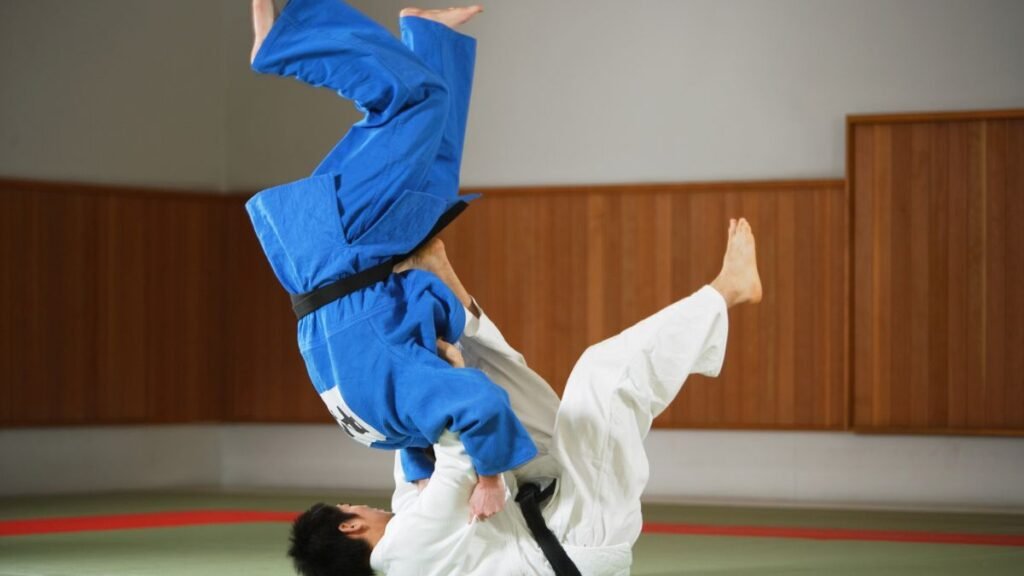
From Humble Beginnings to International Success
Brazil’s first appearance in the Olympic Games for judo was in 1964 in Tokyo. This marked the beginning of a legacy that would inspire generations. By the 1980s, the country had its first major breakthrough with Aurélio Miguel’s gold medal in the +95kg category at the 1988 Seoul Olympics.
The 2000s saw further growth, with Brazil earning its first team medal at the 2003 World Championships. This period also laid the groundwork for future successes, including Rafael Silva’s historic bronze in the men’s heavyweight division at the 2012 London Olympics.
Key Milestones in Brazilian Judo History
Brazil’s judo achievements are a testament to the dedication and rigorous training regimes of its athletes. The relentless pursuit of excellence has resulted in numerous accolades and recognition on the international stage. Here are some of the most significant moments that have defined Brazil’s judo legacy:
- 2013: A watershed year with five World Championship medals, including Rafaela Silva’s gold, which marked a turning point for female athletes in Brazilian judo and inspired many young girls to take up the sport.
- 2016: A historic home Olympics in Rio, where Brazil secured three medals, showcasing the depth of talent in the country and the ability of its athletes to perform under pressure in front of a home crowd.
- 2023: A record-breaking performance at the Santiago Pan American Games with 15 medals, highlighting Brazil’s dominance in the region and the effectiveness of its training programs, which have produced a new generation of skilled judokas.
- 2024: Projections for the Paris Olympics include eight or more medal contenders across weight classes, indicating a strong pipeline of talent and the potential for Brazil to continue its upward trajectory in the sport.
Today, Brazil ranks third globally in judo, a position earned through years of hard work, strategic development, and the support of dedicated coaches and organizations. The sport continues to inspire and unite people across the nation, proving its enduring impact on the world stage.
Rafael Silva: The Heavyweight Champion
Dominating the heavyweight division for over a decade, Rafael Silva has become a legend. His journey from a late start in judo to achieving global recognition is a testament to his dedication and skill. His commitment to the sport is reflected not only in his impressive medal count but also in the way he has inspired countless young athletes across Brazil.
Known for his signature O-uchi-gari combination attacks, Silva has left an indelible mark on the sport. Through rigorous training and a relentless pursuit of excellence, he has redefined what it means to be a heavyweight judoka, blending technique with sheer power and agility.
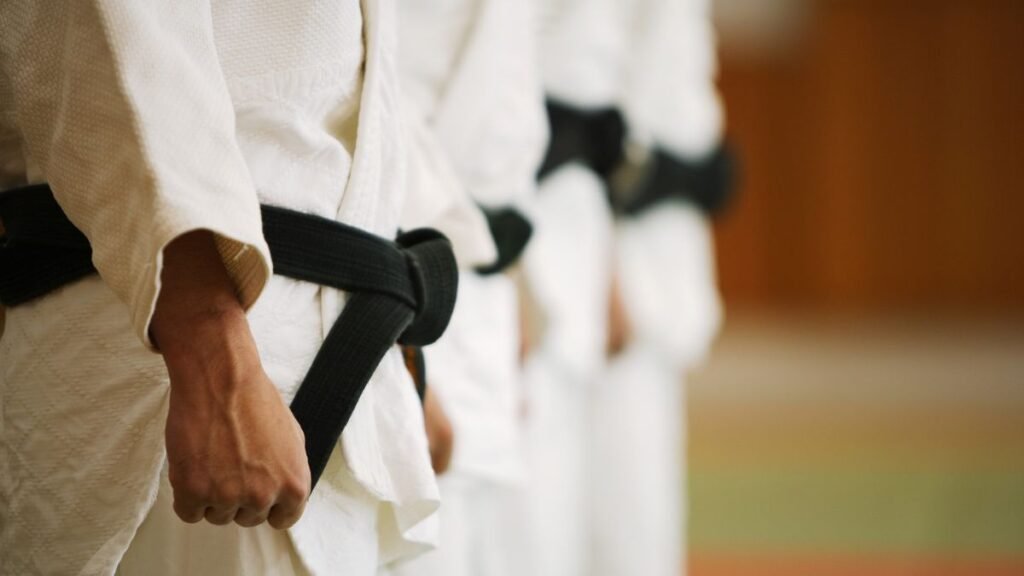
Early Life and Introduction to Judo
Rafael Silva began his judo journey at the age of 15 in the interior of Paraná, a region known for its strong sporting culture. Despite his late start, he quickly rose through the ranks, showcasing his natural talent and remarkable work ethic.
His early training laid the foundation for a career that would dominate the 165kg weight class for over 15 years. Silva’s dedication was evident as he spent countless hours honing his skills, often training alongside older, more experienced judokas who pushed him to excel. This rigorous regimen not only developed his physical abilities but also instilled in him a mental toughness that would serve him well in competitions.
Olympic and World Championship Achievements
Silva’s career is highlighted by numerous accolades that reflect his prowess on the mat. He secured Olympic bronze medals at the 2012 London and 2016 Rio Games, becoming a symbol of hope and inspiration for aspiring athletes in Brazil. In 2013, he earned a silver medal at the World Championship, narrowly losing to the formidable Teddy Riner in a match that showcased the exceptional skills of both competitors.
His dominance extended to the Pan American Games, where he won six consecutive titles from 2012 to 2021, solidifying his status as a leading figure in the sport. Silva’s ability to adapt his techniques and strategies over the years has been a key factor in his sustained success.
Even at the age of 36, Silva demonstrated his enduring skill and resilience by winning a bronze medal at the 2023 Doha Worlds, becoming the oldest athlete to podium in his category. His record of seven appearances at the World Championship (2009-2023) is a testament to his longevity and consistency, illustrating not only his physical capabilities but also his deep understanding of the sport and its evolving dynamics. Each competition added to his legacy, as he continued to inspire younger generations of judokas who look up to him as a role model.
| Event | Achievement | Year |
|---|---|---|
| Olympic Games | Bronze Medal | 2012, 2016 |
| World Championship | Silver Medal | 2013 |
| Pan American Games | 6x Champion | 2012-2021 |
| Doha Worlds | Bronze Medal | 2023 |
Beyond his competitive achievements, Silva has played a pivotal role in mentoring the next generation. As the technical director at EC Pinheiros club, he continues to shape the future of judo in Brazil. His career rivalry with David Moura in domestic competitions has also been a defining aspect of his journey.
Rafaela Silva: A Trailblazer for Women in Judo
From the favelas of Rio to the Olympic podium, Rafaela Silva’s journey is one of resilience and triumph. Growing up in Cidade de Deus, she found her passion for judo through Instituto Reação, a program dedicated to empowering youth through sports. Her early struggles shaped her into a fighter, both on and off the mat.
Silva’s breakthrough came in 2013 when she became the first female world champion from her country in the -57kg category. This victory marked a turning point, demonstrating that determination can overcome adversity. Her signature ne-waza ground techniques became a hallmark of her style, leading to an impressive 83% win rate in international competitions from 2013 to 2021.
Overcoming Adversity to Become a World Champion
The road to success wasn’t without challenges. At the 2012 London Olympics, Silva faced a controversial disqualification that left her heartbroken and questioning her future in the sport she loved. This moment was not just a setback; it was a defining moment that tested her resilience and determination.
However, she used this setback as fuel for her comeback, channeling her disappointment into motivation and training harder than ever before. Four years later, she made history by winning Olympic gold at the 2016 Tokyo Games, a home victory that inspired a nation and marked a monumental achievement in her career. This triumph was not only a personal victory for Silva but also a moment of pride for Brazil, showcasing the spirit of perseverance and dedication that defines athletes.
“I wanted to show that no matter where you come from, you can achieve your dreams.”
Her Impact on Brazilian Judo and Beyond
Silva’s influence extends far beyond her medals. She founded the NGO “Judô pela Paz,” which uses judo to empower youth in underserved communities. Her story has become a symbol of hope, showing that sports can transform lives. Today, she continues to inspire as a commentator for Globo Esporte, sharing her expertise and passion with a new generation.
Rafaela Silva’s legacy is a testament to the power of perseverance. From her humble beginnings to her historic achievements, she has redefined what it means to be a world champion. Her journey reminds us that with grit and determination, anything is possible.
Other Legendary Brazilian Judoka
The world of judo has seen many stars, but few shine as brightly as Brazil’s legendary athletes. Beyond the well-known names, there are others whose contributions have had equally significant impact. Their stories of perseverance, innovation, and success continue to inspire the next generation.
Tiago Camilo: The Versatile Competitor
Tiago Camilo made history at the 2000 Sydney Olympics, winning a silver medal in the -81kg category at just 18 years old. His versatility and adaptability made him a formidable force across multiple weight classes. Over his career, he secured seven medals at the Pan American Games, a record that speaks to his consistency and skill.
Camilo’s ability to compete at the highest level for over two decades is a testament to his dedication. His legacy extends beyond medals, as he continues to mentor young athletes, ensuring the future of the sport remains bright.
Mayra Aguiar: The Three-Time Olympic Medalist
Mayra Aguiar is one of the most decorated athletes in the history of judo. She is the only woman to win three Olympic medals (2012, 2016, 2020) in the sport. Her journey is marked by resilience, particularly after overcoming multiple knee injuries that threatened to end her career.
Aguiar’s achievements are not limited to the mat. She holds a law degree, balancing her athletic career with academic pursuits. Her story is a powerful reminder that determination and hard work can lead to success in multiple arenas.
Flávio Canto: The Innovator and Mentor
Flávio Canto’s impact on judo goes beyond his 2004 Olympic bronze medal. He is a pioneer in using the sport as a tool for social change. In 2003, he founded the “Judô para Vida” project, which uses judo to empower youth in underserved communities.
Canto’s innovative approach has inspired countless individuals, proving that judo is more than just a sport—it’s a vehicle for transformation. His work continues to shape the lives of many, both on and off the mat.
These athletes, along with others like Maria Portela and Eduardo Yudy Santos, have cemented Brazil’s place as a judo powerhouse. Their contributions to the sport and society ensure their legacies will endure for generations to come.
The Future of Brazilian Judo
The future of judo in Brazil looks brighter than ever, with new talents rising and innovative training methods shaping the sport. As the country continues to dominate on the world stage, the next generation of athletes is ready to carry forward this legacy.
Emerging Talents to Watch
Beatriz Souza, currently ranked #1 in the W78kg category, is a standout star. Her technical precision and strategic mindset make her a top contender for the 2028 LA Olympics. Larissa Pimenta, who secured a silver medal at the 2023 World Championships, is another rising talent. Her agility and determination have already made her a force in the -52kg division.
These athletes are part of the CBJ’s “Project 2028,” a youth development program designed to nurture the next generation of champions. With a focus on advanced training techniques, including AI motion analysis, Brazil is ensuring its athletes remain at the forefront of the sport.
The Role of Brazilian Judo in Global Competitions
Brazil’s influence in global competitions continues to grow. The country’s rivalry with judo powerhouses like Japan and France has intensified, pushing athletes to new heights. The expansion of Brazilian coaching expertise to over 30 countries further solidifies its global impact.
Looking ahead, the 2028 LA Olympics could see Brazil fielding over 10 medal contenders across various weight classes. Potential rule changes favoring Brazilian ground techniques may also give the country an edge in future competitions.
As the sport evolves, Brazil’s commitment to innovation and excellence ensures its place as a leader in the world of judo. The future is bright, and the next chapter of this storied legacy is just beginning.
Conclusion: The Enduring Influence of Brazilian Judoka
The impact of judo on Brazil’s sports culture is undeniable. This sport has become a symbol of national pride, blending standing and ground techniques into a unique style that dominates the world stage. Its history is rich with milestones, from Olympic triumphs to global championships.
Judo’s economic contribution is significant, with an annual industry worth $150 million. Films like “Judo na Veia” celebrate their cultural legacy, inspiring new generations to embrace the sport. The upcoming 2027 World Championships in São Paulo will further showcase Brazil’s leadership in judo.
Looking ahead, projections suggest Brazil could secure over 50 Olympic medals by 2040. This growth reflects the country’s commitment to nurturing talent and innovation. As judo evolves, Brazil’s influence will continue to shape the sport’s future, both at home and globally. Learn more Team Sports.
FAQ
Who are some of the most iconic Brazilian judo athletes?
Some of the most iconic athletes include Rafael Silva, Rafaela Silva, Tiago Camilo, Mayra Aguiar, and Flávio Canto. Each has made significant contributions to the sport, both nationally and internationally.
What are the key milestones in Brazilian judo history?
Key milestones include the first Olympic medal in 1984, Rafaela Silva’s gold at the 2016 Rio Olympics, and multiple world championship titles. These achievements have solidified Brazil’s place in global judo.
How did Rafaela Silva impact women’s judo in Brazil?
Rafaela Silva became the first Brazilian woman to win Olympic gold in judo at Rio 2016. Her success has inspired a new generation of female athletes and highlighted the importance of diversity in the sport.
What makes Rafael Silva a standout in heavyweight judo?
Rafael Silva is renowned for his dominance in the heavyweight category, having earned multiple medals at the World Championships and the Olympics. His technical skill and consistency have earned him a legendary status in the sport.
Who are the emerging talents in Brazilian judo?
Emerging talents include young athletes who have shown promise in international tournaments. Keep an eye on competitors in the Pan American Games and Grand Prix events for future stars.
How has Brazilian judo influenced global competitions?
Brazilian judo has become a powerhouse in global competitions, consistently earning medals at the Olympics, World Championships, and Pan American Games. The country’s athletes are known for their unique techniques and resilience.
What role does Flávio Canto play in Brazilian judo today?
Flávio Canto is not only an Olympic bronze medalist but also a mentor and innovator. He founded the Instituto Reação, which promotes judo as a tool for social change, helping young athletes achieve their potential.

